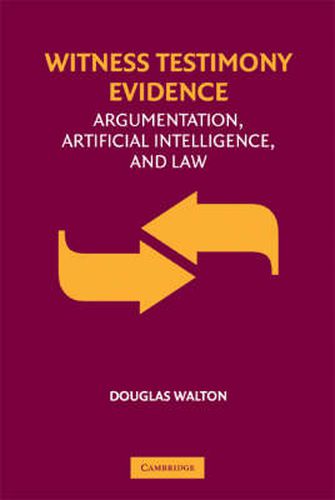Readings Newsletter
Become a Readings Member to make your shopping experience even easier.
Sign in or sign up for free!
You’re not far away from qualifying for FREE standard shipping within Australia
You’ve qualified for FREE standard shipping within Australia
The cart is loading…






Recent work in artificial intelligence has increasingly turned to argumentation as a rich, interdisciplinary area of research that can provide new methods related to evidence and reasoning in the area of law. Douglas Walton provides an introduction to basic concepts, tools and methods in argumentation theory and artificial intelligence as applied to the analysis and evaluation of witness testimony. He shows how witness testimony is by its nature inherently fallible and sometimes subject to disastrous failures. At the same time such testimony can provide evidence that is not only necessary but inherently reasonable for logically guiding legal experts to accept or reject a claim. Walton shows how to overcome the traditional disdain for witness testimony as a type of evidence shown by logical positivists, and the views of trial sceptics who doubt that trial rules deal with witness testimony in a way that yields a rational decision-making process.
$9.00 standard shipping within Australia
FREE standard shipping within Australia for orders over $100.00
Express & International shipping calculated at checkout
Recent work in artificial intelligence has increasingly turned to argumentation as a rich, interdisciplinary area of research that can provide new methods related to evidence and reasoning in the area of law. Douglas Walton provides an introduction to basic concepts, tools and methods in argumentation theory and artificial intelligence as applied to the analysis and evaluation of witness testimony. He shows how witness testimony is by its nature inherently fallible and sometimes subject to disastrous failures. At the same time such testimony can provide evidence that is not only necessary but inherently reasonable for logically guiding legal experts to accept or reject a claim. Walton shows how to overcome the traditional disdain for witness testimony as a type of evidence shown by logical positivists, and the views of trial sceptics who doubt that trial rules deal with witness testimony in a way that yields a rational decision-making process.